Mbunza visit: otherwise entitled the dug-out canoe fiasco
So, we just got out of this dug-out canoe, from a crocodile and hippo-infested lake, with a Mbunza tribesman. I say got out. That’s a simplification of the situation. First, I was pushed by Iain from behind, then pulled by the tribesman from the front, before finally kind of, falling out. Tumbling if you like. Thankfully, I did not grab hold of his loincloth. That would be a whole other story.
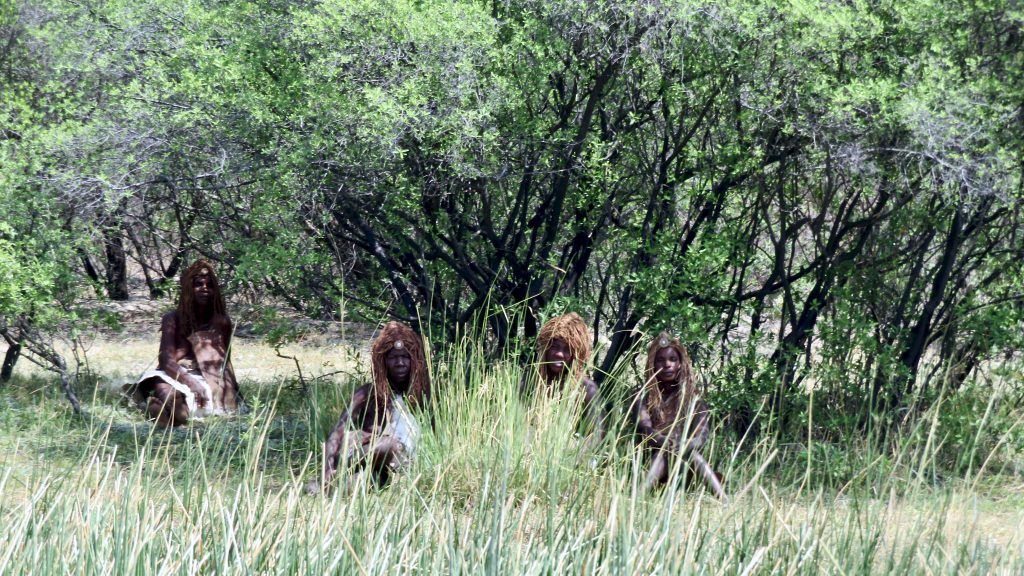
All this much to the amusement of the waiting Mbunza tribeswoman. I gestured to them with the international sign of, ‘Well that was a bloody disaster wasn’t it!’ They reciprocated with the international language of – laughing their heads off. Actually, we had had a prior run at this exchange as I also, fell in, on top of Iain. Dugout canoes are tricky. It’s a fact.
Mbunza tribe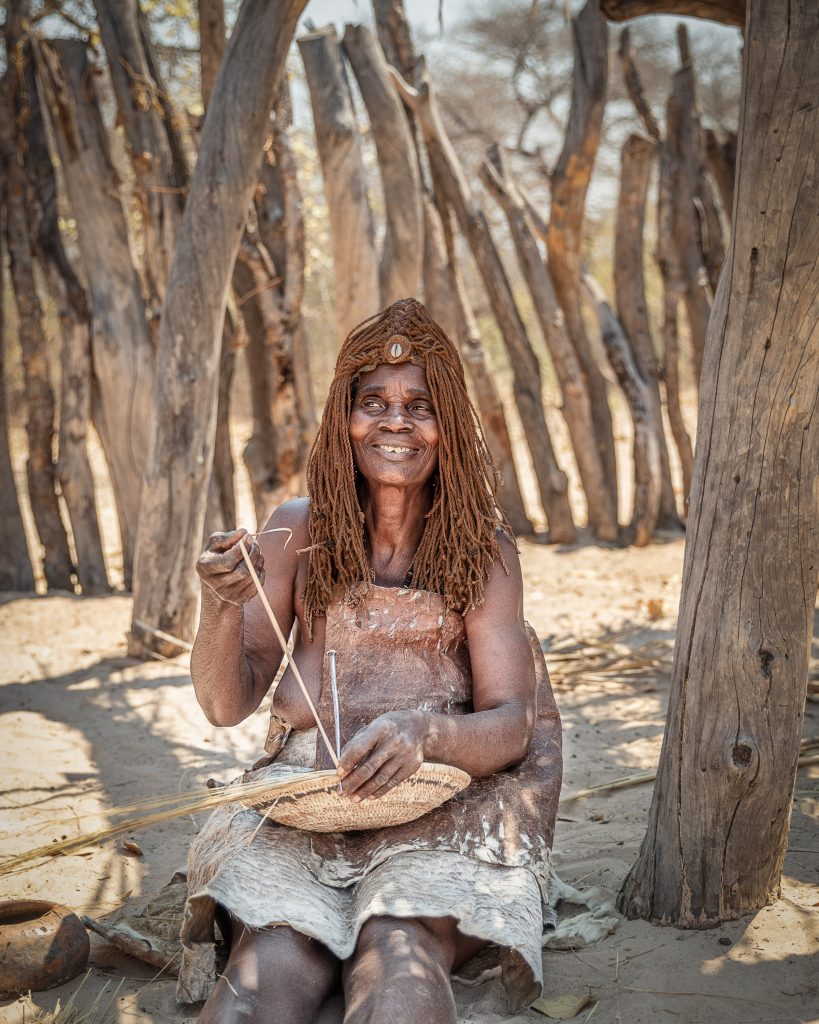 Traditional Crafts Workshops: Visitors have the chance to participate in workshops where they can learn traditional crafts, such as pottery, basket weaving, or beadwork, under the guidance of skilled artisans from the village.
Traditional Crafts Workshops: Visitors have the chance to participate in workshops where they can learn traditional crafts, such as pottery, basket weaving, or beadwork, under the guidance of skilled artisans from the village.
The Mbunza tribe is one of the indigenous ethnic groups in Namibia, specifically living in the northeastern part of the country, near the border with Angola and Botswana. They are part of the larger Ovambo ethnic group, which is the largest ethnic group in Namibia. The Mbunza people have a rich cultural heritage and a traditional way of life that is deeply rooted in their customs, language, and practices. Historically, they were primarily subsistence farmers, cultivating crops such as millet, sorghum, and maize, and rearing livestock. However, like many other indigenous communities, their way of life has evolved because of various factors, including modernization and external influences.
Mbunza village
We were just finishing off our extraordinary visit to the Mbunza village in northern Namibia, bordering Botswana and Angola, where they display their traditional way of life, referred to as a living museum. The village functions as both a home for the tribe’s residents and a cultural display for tourists. In these living museums, visitors can experience aspects of the tribe’s traditional lifestyle, observe their customs, and interact with the Mbunza people as they showcase their heritage. They offer activities and performances that show traditional practices, dances, crafts, and rituals – and a trip in their traditional dug-out canoe. These visits provide opportunities for cultural exchange and understanding between visitors and the Mbunza community. I understand a bit more of their unique way of life while they now understand Two overweight middle-aged people have no business in a dug-out canoe. Ever. Just no. Nope.
However, for my gallant canoe efforts, I was given a ‘necklace’ made there and then out of a water lily. I think the tribesman pulled it from the lake whilst holding in his despair that his poor wee canoe, which had survived decades of healthy tribes-people off to catch their fish; may now be on its last voyage. Downwards. Straight to the bottom of the lake. Canoe no more. Overall, the Mbunza tribe and village represent a fascinating aspect of Namibia’s cultural diversity, allowing fellow travellers to connect with and learn from a different way of life while enjoying the beauty and uniqueness of this region.
He who dares wins?
So, I just keep telling myself, that travel broadens the mind. Embrace the unknown, engage with local communities respectfully, and appreciate the transformative power of new experiences. If the canoe doesn’t kill you first. He who dares wins? Some such profoundness. It’s all good. And now time for a wee Savanna dry on the banks of the Kavango River to toast life, travels and another day we survived to tell the tale. Cheers!
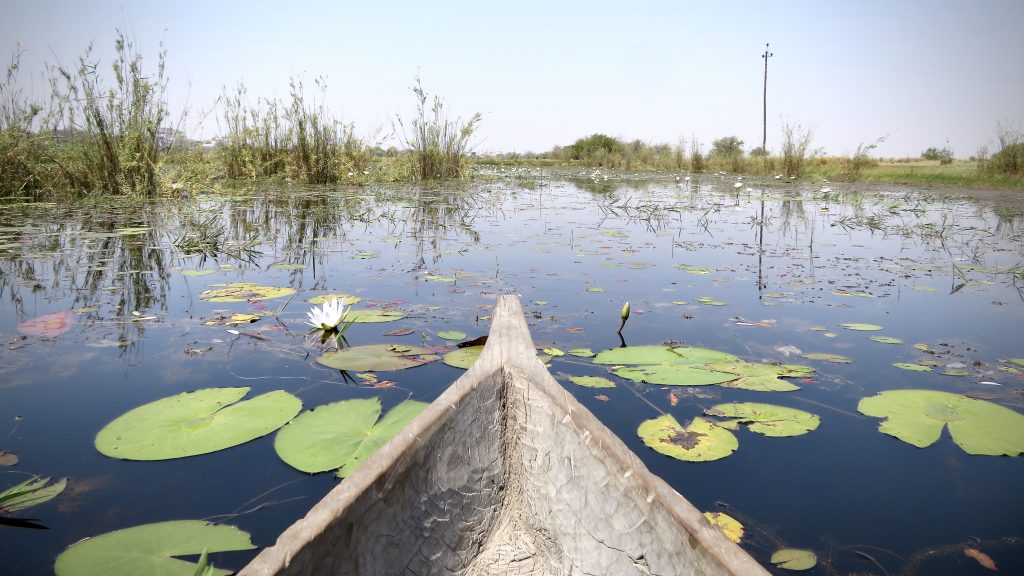


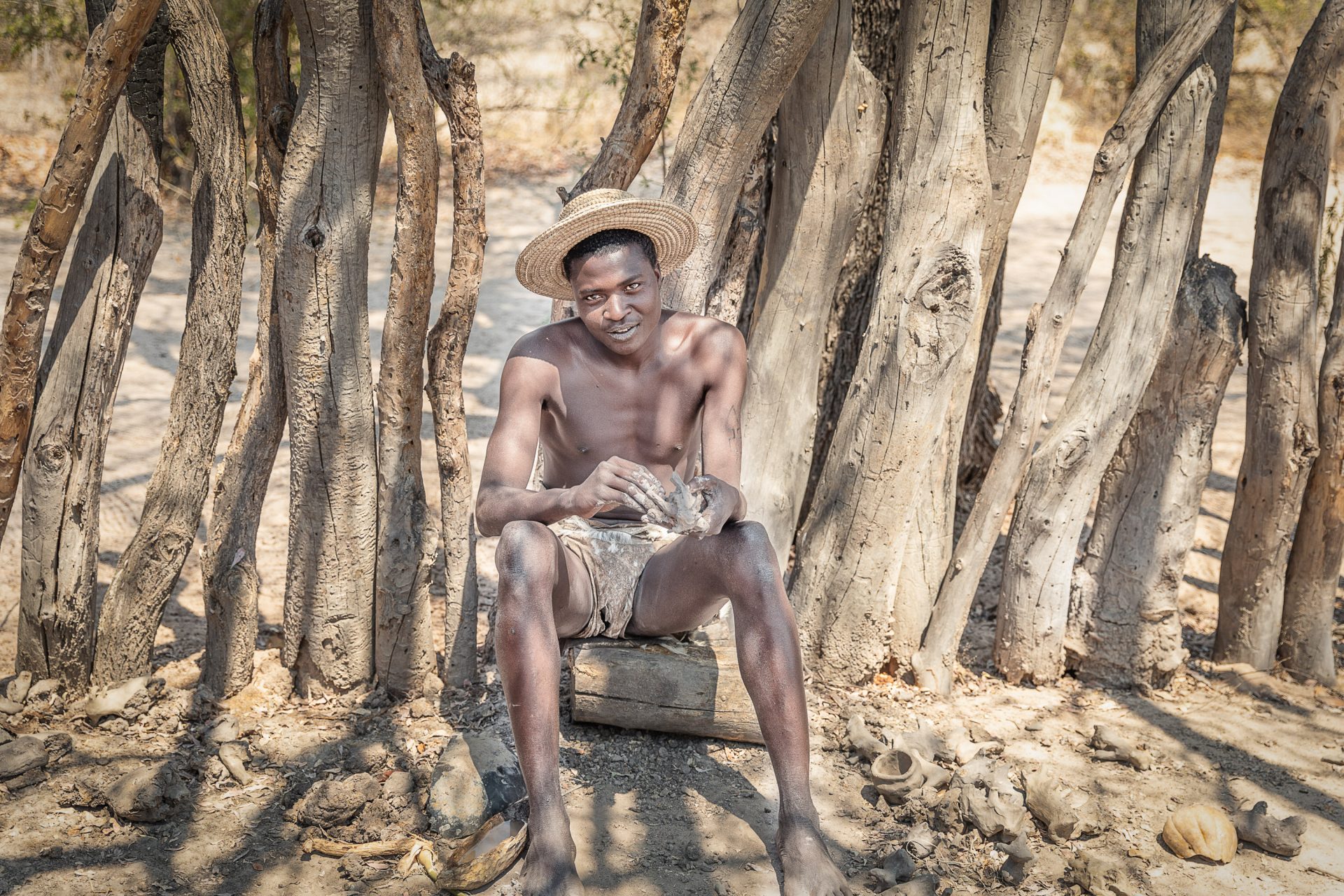
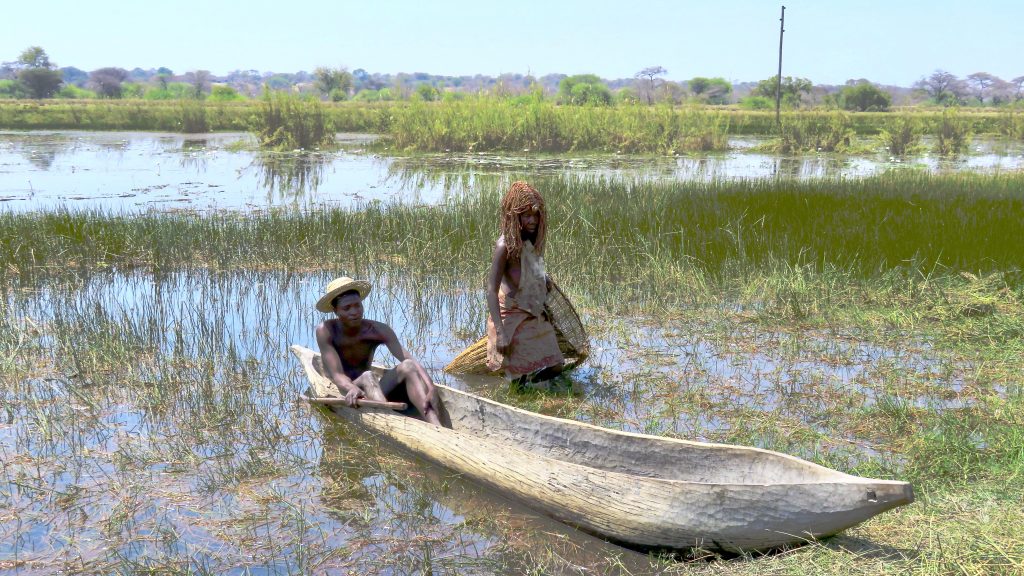
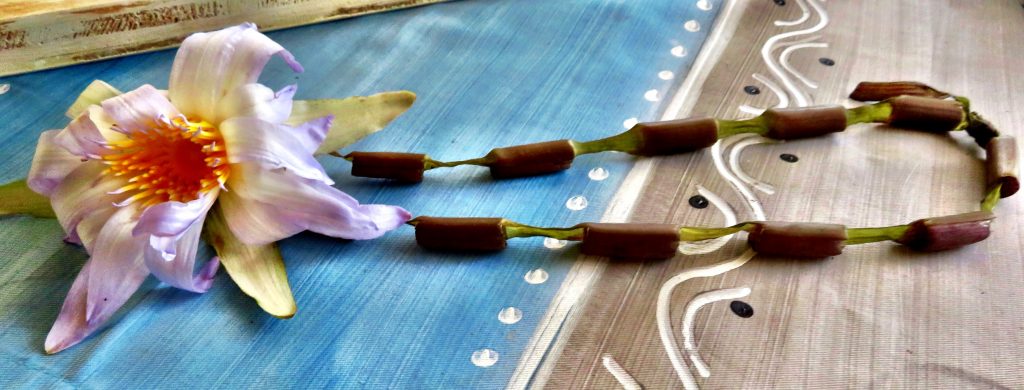
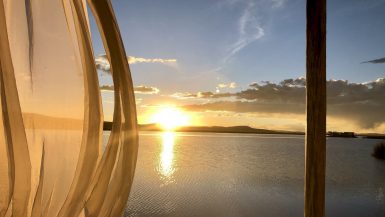
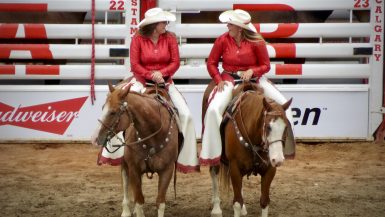
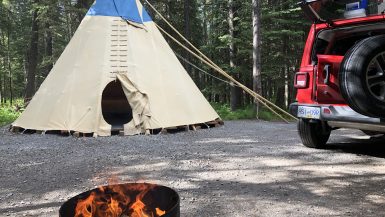
Leave a reply